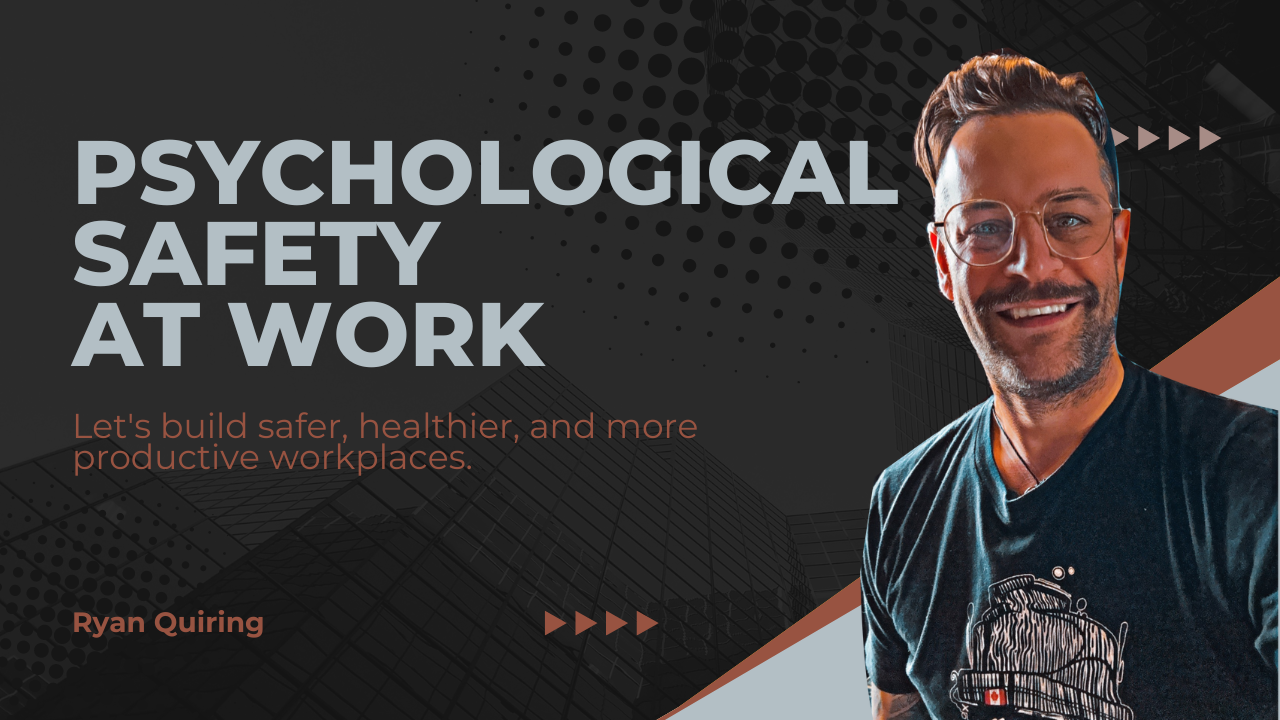I’m a creative professional seeking to understand the current state of burnout in the workforce. I was pointed in this direction by observing the anti-work sentiment, quiet quitting, people showing up anxious, or people blaming their work for the problems they face.
Today, I want to discuss why psychological safety matters in the workplace. Psychological safety is believing you won’t be punished, humiliated, or marginalized for speaking up with ideas, questions, concerns, or mistakes. It’s about creating an environment where people feel comfortable being themselves and expressing their thoughts without fear of negative consequences.
Now, why does this matter? Let’s first address the elephant in the room—the outdated view of employment that still lingers in many organizations. This old-school mindset sees employees as cogs in the machine, tools for productivity without agency or choice. This perspective leads to undervaluation and disrespect, treating people as disposable resources rather than valuable contributors. But here’s the thing: we’re no longer in the Industrial Revolution.
The modern workplace demands a different approach. We must promote a model where employment is a mutual agreement based on respect, fair treatment, and meaningful engagement. This is where psychological safety comes into play. When employees feel psychologically safe, they’re more likely to:
- Share innovative ideas without fear of ridicule,
- Report errors or concerns before they become significant issues, Collaborate more effectively with their colleagues,
- Take calculated risks that could lead to breakthroughs,
- Bring their whole selves to work, leading to more authentic interactions
These factors contribute to a more dynamic, productive, and ethical work environment. Creating the conditions for excellence and innovation.
Moreover, psychological safety significantly enhances the ethical climate of a business. When people feel safe to speak up, it becomes much more complicated for unethical practices to take root or persist. It creates a culture of accountability and transparency that benefits everyone – employees, leadership, and stakeholders alike. In essence, psychological safety is about recognizing the full humanity of each employee. It’s about creating a workplace where people aren’t just surviving but thriving. Where they’re not just punching a clock but fully engaged in meaningful work. As leaders and colleagues, we can foster this kind of environment. It starts with listening – really listening – to those around us. It involves challenging our own assumptions and biases. It also requires creating spaces where everyone’s voice is valued and respected.
Remember, a psychologically safe workplace is more than a “nice to have.” Today, it’s a competitive advantage. It’s how we unlock our teams’ and organizations’ full potential. So, let’s move beyond the outdated views of employment. Let’s create workplaces where psychological safety isn’t just a buzzword but a lived reality. When people feel safe at work, amazing things can happen.
